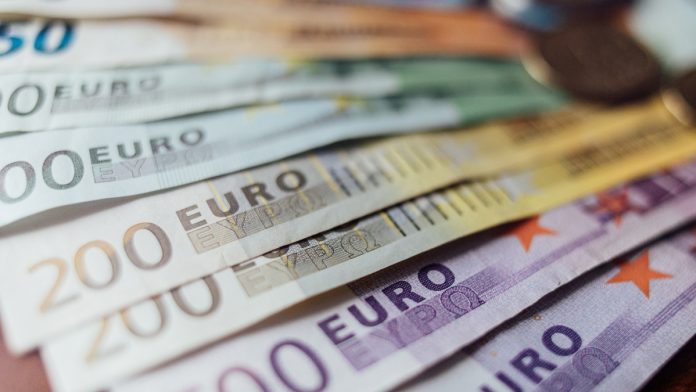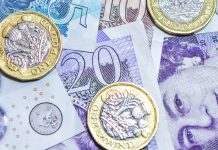- Pound (GBP) looks to public sector net borrow
- Pound drifted lower on Friday
- Euro (EUR) rose despite German PPI falling -6%
- Eurozone current account data is due
The Pound Euro (GBP/EUR) exchange rate is falling for a second straight day. The pair fell -0.09% in the previous session, settling on Monday at €1.1706 and trading in a range between €1.1676 – €1.1721. At 05:35 UTC, GBP/EUR trades -0.02% at €1.1703.
The euro rose in the previous session despite German producer prices index falling at the fastest pace since the financial crisis. German producer prices, which measure inflation at the factory gate level dropped by 6% year on year in July, after rising 0.1% in June. This was below the -5.1% decline that economists were expecting.
The sharp fall in producer prices is a signal of easing inflationary pressures, which means that consumer price inflation should also cool further. This takes the pressure off the European Central Bank to keep hiking interest rates and fuels bets that peak rates in Europe could be close.
However, the sharp drop is also a sign of a sharp slowdown in demand, which raises concerns over a prolonged recession in the region.
Looking ahead, eurozone current account data is due to be released today. However, PMI data on Wednesday and ECB President Christine Lagarde’s speech at the Jackson Hole Summit could carry more weight for the pair. The market will be watching to see if Lagarde provides any clues that peak rates could be near.
The pound drifted lower yesterday amid a lack of fresh fundamental drivers. The pound had pushed higher in the previous week after record wage growth and sticky core inflation fueled bets that the Bank of England could raise interest rates higher and for longer in order to tame inflation.
Today the economic calendar is relatively quiet with public sector net borrowing data due to be released. Economists forecast public sector net borrowing will fall slightly to £17.03 billion in July, down from £17.67 billion in June. The government borrowed less than expected in June.





